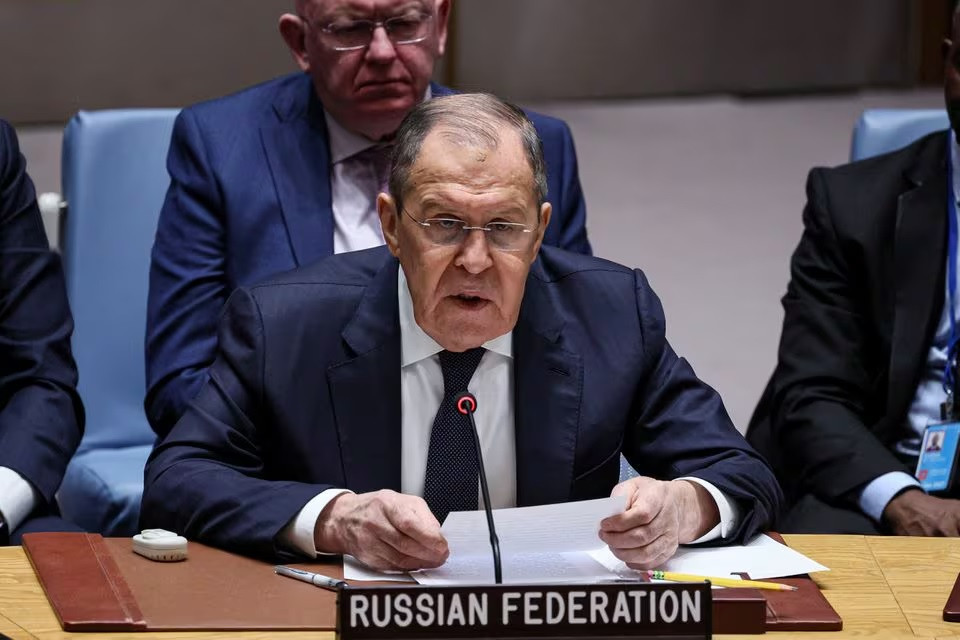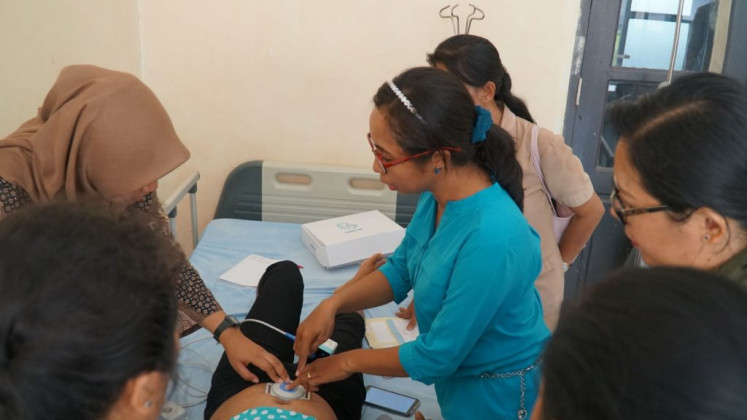Popular Reads
Top Results
Can't find what you're looking for?
View all search resultsPopular Reads
Top Results
Can't find what you're looking for?
View all search resultsRules-based world order or disorder?
The situation in Ukraine is a graphic example of how desperately the “world hegemon” is fighting to preserve its dominance.
Change text size
Gift Premium Articles
to Anyone
R
egarding the article published in The Jakarta Post on Feb. 29, 2024, about the Ukrainian conflict, we would like to inform the readers of our view of the situation on the ground.
While criticizing Russia for aggression and violation of Ukraine’s sovereignty and territorial integrity, the West seems to neglect the fact that the special military operation is being carried out in accordance with Article 51 of the United Nations Charter, in full compliance with the Russian legislation and at the request of the Donbass Republics that had been subject to the Kyiv regime's shelling and blockade for eight years with the connivance of Western countries.
It was Russia that made every effort until the very last moment to deescalate tensions in Europe both by adhering to the Minsk Package of Measures that was sabotaged by Kyiv and its patrons and by proposing mutual legal security guarantees in December 2021.
Our country seeks to prevent Russians and Russian language speakers from being exterminated as well as to eliminate long-standing security threats created by the West along its borders (despite promises from NATO countries that they will not try to expand to the East) to anticipate and counter broader aggression.
We also see many appeals to a “rules-based world order”, that, if examined thoroughly, actually would lead to “disorder”.
The Western minority singlehandedly decided to replace the UN-centric international legal architecture with so-called rules that no one has ever seen. The basis of such policy is neocolonialism, the desire to achieve dominance in political, economic and humanitarian spheres under the cover of democratic slogans.
This “order” consists of dividing the world into the chosen ones who are viewed as exceptional (the garden) and all the rest (the jungle), who are supposed to cater to the interests of the “golden billion”.
Abusing the trust of the world majority, the aggressive minority led by the United States improved on colonial practices and did not hesitate to use force in Yugoslavia, Iraq, Libya, Syria and other countries of Asia and Africa.
Today, two years since the beginning of the special military operation, neither the Western countries nor the Ukrainian authorities themselves hide the fact that their goal is to inflict a strategic defeat to Russia.
To achieve that, they are ready to fight “to the last Ukrainian”, sacrificing their country and its people for Western loans. Besides, Ukraine became a testing ground for Western weapons and various military tactics, and agricultural land in Ukraine has been appropriated by American corporations.
The situation in Ukraine is a graphic example of how desperately the “world hegemon” is fighting to preserve its dominance. Ukraine is a tool in the hands of its American and European puppet masters.
In fact, what is being decided in Ukraine and around it is whether the world order will be fair, democratic and polycentric, or whether a narrow group of states will succeed in imposing a unipolar model on the international community, that is, a neocolonial division of the world into those who regard themselves as “exceptional” and the rest, whose role is to obey the orders of the “chosen” people.
That is why, despite the Western pressure, Russia continues to fight not only for its own strategic security, but also for the new more just world security architecture.
***
The writer is Russian ambassador to Indonesia.











